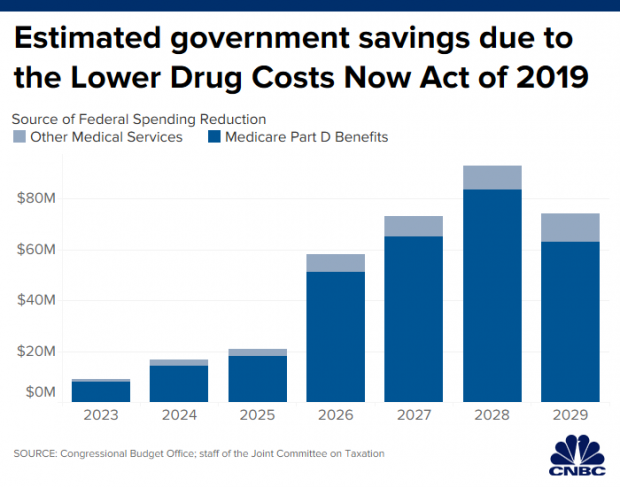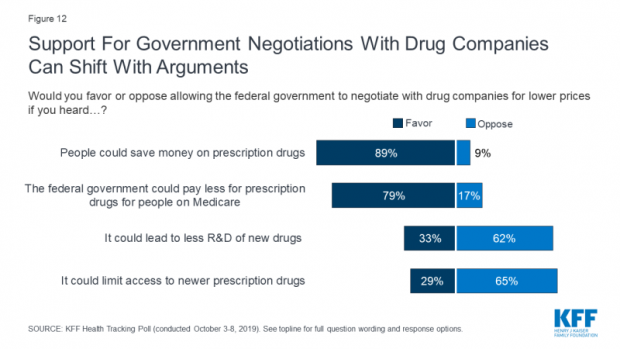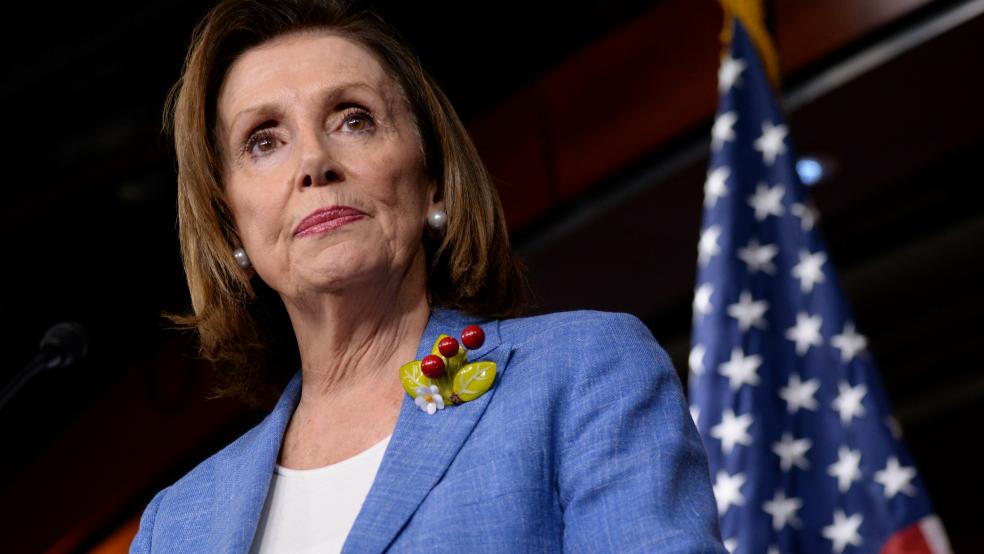House Speaker Nancy Pelosi’s bill to reduce prescription drug prices would save Medicare $345 billion from 2023 through 2029, according to a preliminary analysis released Friday by the nonpartisan Congressional Budget Office.
The CBO analysis looked only at one major provision of the legislation: its requirement that the federal government negotiate prices with the manufacturers of at least 25 of the most expensive prescription drugs and apply those negotiated prices to the private market as well.
“We expect even bigger savings when the CBO completes its full analysis of the entire bill,” House Majority Leader Steny Hoyer said in a statement.

A separate analysis issued Friday by actuaries at the Centers for Medicare and Medicaid Services found that the Pelosi bill would lower U.S. spending on health care by $481 billion over a decade, including $158 billion saved by households as the result of lower premiums and out-of-pocket costs, according to The Hill.
At the same time, CBO’s analysis also found that the legislation would have wide-ranging effects on the drug market — both in the U.S. and internationally — and would reduce pharmaceutical companies’ revenues. As a result, it said, manufacturers would cut spending on research and development, which would lead to fewer new drugs being introduced over time. CBO projected that a reduction in revenues of $500 billion to $1 trillion would lead to about 8 to 15 fewer drugs coming to market over 10 years, out of approximately 300 drugs in total that might be approved over that time.
“CBO’s report confirms House Democrats’ ‘dictate or destroy’ price controls only serve to hurt the development of future cures and damage American innovation,” Rep. Kevin Brady of Texas, the top Republican on the House Ways and Means Committee, said in a statement.
The Kaiser Family Foundation’s tracking poll finds that 88% of Americans favor allowing the federal government to negotiate prices with pharmaceutical companies for Medicare, though that support shrinks to 33% or less when people are told that the policy could lead to less drug research and development or limit access to newer medications.

For its analysis, CBO assumed Pelosi’s legislation would be enacted by the end of this year, and House Democrats reportedly hope to bring it to a vote as soon as the end of the month as part of an effort to signal that they remain focused on American’s pocketbook issues even as they pursue an impeachment inquiry into President Trump. But GOP lawmakers oppose Pelosi’s bill and the idea of allowing Medicare to negotiate drug prices — and progressives are reportedly working on a list of changes they’d like to make to the plan.
“Congressional Republicans have said they want to work with Democrats on much smaller drug pricing legislation, for example speeding the introduction of cheaper generic drugs,” The Hill’s Peter Sullivan writes. “Pelosi is still hoping that if Trump, who has railed against high drug prices, endorses the bill, it would put pressure on congressional Republicans. Still, the measure faces dim hopes in the Senate, where Senate Majority Leader Mitch McConnell (R-Ky.) has vowed to block it.”





